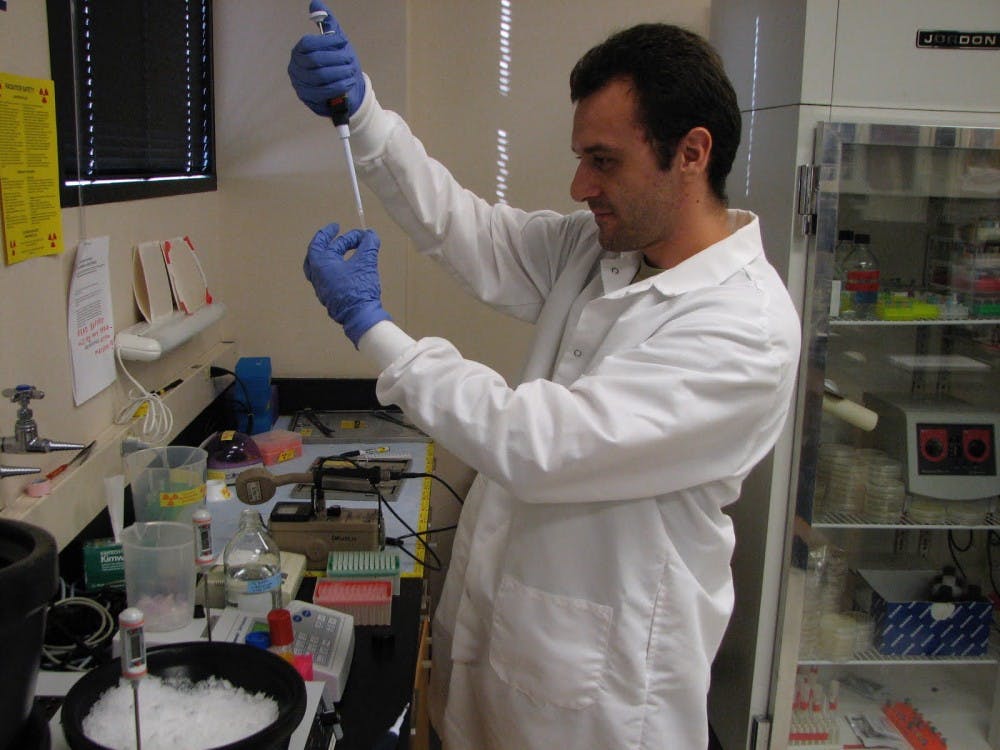As people age, their cognitive abilities decline. What may be a mild disappointment and self-deprecating "I'm getting old" joke for some, may be a serious and life threatening disease for others. But one ASU lab is trying to learn more about what contributes to healthy aging.
Researchers at the ASU West campus-based Jurutka lab, headed by math and natural sciences professor Peter Jurutka, are pioneers in nutraceutical research, or pharmaceutical vitamins and nutrients, especially in the context of healthy aging.
Jurutka and his team seek to better understand how compounds found in an ordinary diet interact in the body and how they contribute to aging.
One of their main compounds of interest is vitamin D. Researchers said the vitamin could help combat the oxidation process, which is a biochemical process that can damage cells.
"That’s what induces the aging process," said Marya Sabir, a nutraceutical researcher and one of Jurutka's former students. "Vitamin D kind of helps to reverse that kind of stress."
Not only has vitamin D been found to reduce cellular degradation, but according to the National Institutes of Health, vitamin D is also an important component for nearly every organ system in the body.
Another compound the Jurutka lab studies which has recently received mainstream attention is resveratrol. Sabir said resveratrol is found in foods like the skin of grapes, wine, cranberries, blueberries and peanuts.
The compound is an antioxidant that may have anti-aging properties, as it can break down harmful oxidized cells so the body can excrete them more easily.
While there are potential methods for generally improving the aging process, almost none of these supplemental compounds have undergone human trials.
Furthermore, neurodegenerative diseases cannot be treated with such supplementation. There is currently no accepted cure for age-related pathologies such as Alzheimer’s disease. Although several treatments and preventative measures exist for dementia, efficacy varies from person to person.
"There are four FDA approved drugs (for treating Alzheimer’s disease) and as far as efficacy, they don’t do much," Salvatore Oddo, the principal investigator of ASU's Biodesign lab focusing on Alzheimer's, said.
"They do not stop the progression of the disease. Patients may have improvement early on when on these drugs, but they still get worse. That is why there is an urgent need to have new medications."
ASU isn't the only organization in Tempe looking to curtail aging. A Tempe-based startup, Memory Care Labs, is producing a supplement intended to aid in the prevention of age-related cognitive decline.
Memory Care Labs’ first product, Memory Defense, contains several plant-based compounds that may improve memory and blood flow, as well as reduce stress.
Brian Straub, a clinical pharmacist and yoga instructor, founded the company. Straub wants to improve the health and well-being of adults 55 and older through the use of physical and mental exercise, as well as preventative supplementation.
"I chose these compounds because they were the ones that show the most positive data," Straub said. “In medicine it's safety first — do no harm.”
Straub has also committed to helping individuals suffering from Alzheimer’s and dementia.
"Every sale we donate a portion of our earnings to Alzheimer’s research, in whichever direction that’s going to take," he said.
Reach the reporter at snnoudal@asu.edu or follow @seannoudali on Twitter.
Like State Press on Facebook and follow @statepress on Twitter.




